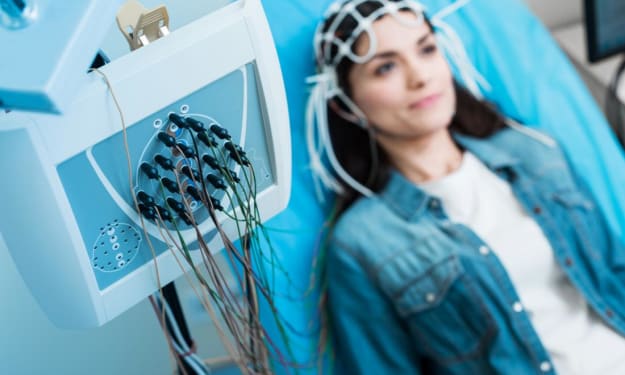Psychological Stress: Understanding, Effects, and Coping Strategies
Understanding the Impact of Psychological Stress on Mental and Physical Health: Coping Strategies and Prevention

Psychological stress has become an increasingly prevalent issue in today's fast-paced and demanding world. It affects individuals of all ages and backgrounds, impacting both their mental and physical well-being. In this article, we will delve into the intricacies of psychological stress, explore its effects on mental and physical health, discuss coping mechanisms, and highlight the importance of seeking help when needed.
Introduction
Psychological stress refers to the emotional and physiological response an individual experiences when faced with challenging or demanding situations. It is a natural reaction that prepares the body for fight-or-flight responses, but when stress becomes chronic or overwhelming, it can have detrimental effects on overall health and quality of life. Recognizing and effectively managing psychological stress is crucial for maintaining well-being and preventing long-term health issues.
Understanding Psychological Stress
Psychological stress can stem from various sources, such as work-related pressures, relationship difficulties, financial problems, or major life changes. It is essential to identify the underlying causes and triggers to address stress effectively. Additionally, stress can manifest in different ways, affecting both mental and physical health.
Signs and Symptoms of Psychological Stress
The signs and symptoms of psychological stress can manifest in a range of ways, varying from person to person. Emotionally, individuals may experience heightened irritability, mood swings, or feelings of overwhelm. Behaviorally, stress can lead to changes in appetite, sleep disturbances, or withdrawal from social activities. On a physical level, stress may manifest as headaches, muscle tension, or gastrointestinal issues.
Effects of Psychological Stress on Mental Health
Psychological stress can significantly impact mental health, contributing to the development or exacerbation of various conditions. Anxiety disorders, characterized by excessive worry and fear, are commonly associated with stress. Likewise, stress can contribute to the onset or worsening of depression, leading to persistent feelings of sadness and loss of interest in activities. Post-traumatic stress disorder (PTSD) can also be triggered by traumatic experiences, causing intrusive thoughts and emotional distress. Furthermore, stress can lead to self-medication through substance abuse and addiction.
Effects of Psychological Stress on Physical Health
The effects of psychological stress are not limited to mental health; they can also have a profound impact on physical well-being. Chronic stress can contribute to cardiovascular problems, including high blood pressure and heart disease. Digestive issues such as irritable bowel syndrome (IBS) and ulcers are also common. Moreover, stress weakens the immune system, making individuals more susceptible to infections and illnesses. Chronic pain conditions, such as tension headaches or back pain, can be aggravated by stress.
Coping Mechanisms for Psychological Stress
To effectively manage psychological stress, adopting healthy coping mechanisms is crucial. Engaging in regular exercise, maintaining a balanced diet, and getting sufficient sleep are essential for overall well-being. Stress management techniques, such as deep breathing exercises, meditation, and journaling, can help reduce stress levels. Additionally, seeking professional help through therapy or counseling can provide individuals with valuable tools and support to navigate stressful situations.
Strategies for Preventing Psychological Stress
Preventing psychological stress involves proactive measures to minimize its occurrence. Prioritizing self-care activities, such as engaging in hobbies, spending time with loved ones, and practicing relaxation techniques, can help maintain a healthy balance. Setting boundaries and managing expectations can also alleviate stress by avoiding overwhelming commitments. Building a strong support network of friends, family, or support groups provides a sense of community and assistance during challenging times.
The Role of Psychology and Therapy in Managing Psychological Stress
Psychology and therapy play a vital role in managing psychological stress. Cognitive-behavioral therapy (CBT) helps individuals identify and change negative thought patterns and behaviors contributing to stress. Mindfulness-based stress reduction (MBSR) teaches techniques for cultivating present-moment awareness and reducing stress reactivity. Other therapeutic approaches, such as psychodynamic therapy or acceptance and commitment therapy (ACT), can also be beneficial in addressing stress and its underlying causes.
The Importance of Seeking Help for Psychological Stress
Acknowledging the importance of mental health and seeking help for psychological stress is crucial. Breaking the stigma surrounding mental health is essential to create a supportive environment where individuals feel comfortable reaching out for assistance. Professional support and resources, including therapists, helplines, and online communities, can provide guidance and specialized interventions tailored to individual needs.
Conclusion
Psychological stress is a prevalent issue that can significantly impact an individual's mental and physical well-being. By understanding the causes, signs, and effects of stress, as well as adopting healthy coping mechanisms and seeking professional help when necessary, individuals can effectively manage and reduce the impact of psychological stress on their lives.
About the Creator
Ranjan Kumar Pradhan
Unleash your curiosity and dive into a realm of captivating wonders. Join me on a journey of knowledge, inspiration, and thought-provoking insights. Let's embark on an extraordinary adventure together.





Comments
There are no comments for this story
Be the first to respond and start the conversation.